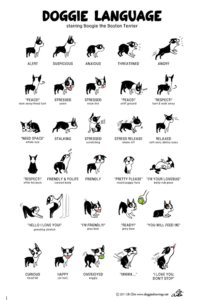Are You Ready for a Dog?
We Mean, Really, Honestly, Undoubtedly and Unconditionally – Ready for a Dog?
The reason for wanting a dog falls into the “high’s” category. We visualize all the wonderful things that go along with having a dog:
- Autumn walks through the leafy park
- Summer walks on the beach
- Snuggles on the couch
- Getting in the best shape of our lives, by walking more
- Unconditional love from mans best friend
- Really…it’s an endless list. Having a dog is awesome!
But, don’t forget the less fun stuff:
- Buying more dog food, toys, poop bags
- Poop – inside or out!
- Muddy paws
- Temper tantrums (yours and the dogs)
- Spending money on training to help resolve temper tantrums
- 6 am walks when it’s really cold out
- And, unfortunately…this list can go on and on too! And this list of things is what often causes people to give up on dogs that they have intended to love forever.
If you have scrolled through Facebook, you’ve seen memes with the theme of “getting a dog is a forever commitment”. While scrolling, we all say “duh, of course” as we grew up with those values.
If you have been through screening for a dog or cat adoption, you’ve likely been asked if you’ve given up a pet before. Maybe you felt insulted at the question – and we get it. But, pets are given up on all the time, and this is why there is a need for rescue organizations.
Good things in life take time, work and/or money: the new apartment, the new job, having children. Having a dog is no exception, and putting the work in upfront will impact your long term relationship with your dog. We’ve all seen our friends with unruly kids, and you think “if you just did this or that”, things would be easier. Again – the same applies to having a dog, whether it be a rescue dog or a brand new puppy. Time and money are needed to get the best out of your pet (and your relationship with him/her)
You and a new dog will go through growing pains together. You will need to be consistent and fair (this means no dogs on the couch). You need to be predictable. You will need to google, read, talk to friends, practice, and invest in a trainer. Your dog may pee in the house. He may spill your drink or swipe your burger. She may eat your shoes, or howl when you leave her. Each of these things is about communication, and YOU will need to change your game to help bridge the gap.
You and a new dog will also grow through life changes together. You may get married / divorced / have kids / work outside the home / work at home / get sick / lose your job / etc. Life will evolve and change, and you will need to adapt and honour your commitments – including those to your canine BFF. Your dog’s life will change more dramatically as their life span is so much shorter. Before you know it, your young sassy pup will be a senior citizen. Vet bills will increase if your dog becomes ill. There will be special needs that come along with having a senior dog, and you need to be there for them, regardless of the life changes they go through (you know, they’d do the same for you if they could).
Learning to communicate with your dog will make your canine companion so much happier.  While dogs can’t talk, they do communicate with us in so many ways. We know and love all the happy “words” – a wagging tail, or a happy walk. We do all the right things to elicit those positive responses from our dog. We know that if we say “peanut butter” or “want to go for a walk”, our dog will communicate their agreement. The inverse is also true, and a dog will tell you when they are worried, scared, bored, or sick. It is our job as people to learn to “listen” and understand a dog’s needs or behaviour.
While dogs can’t talk, they do communicate with us in so many ways. We know and love all the happy “words” – a wagging tail, or a happy walk. We do all the right things to elicit those positive responses from our dog. We know that if we say “peanut butter” or “want to go for a walk”, our dog will communicate their agreement. The inverse is also true, and a dog will tell you when they are worried, scared, bored, or sick. It is our job as people to learn to “listen” and understand a dog’s needs or behaviour.
For example, does a dog bark when people come over to the family home? Mine does (terrible, I know). You need to determine what the dog is trying to tell you. Are they nervous, are they shy, do they feel threatened and want to advance, or are they just fools who get excited about visitors? It is your responsibility to understand the behaviour and put measures in place to help your dog cope, especially when the behaviour does not align with your lifestyle. This is comparable to reasons a baby may cry – hungry, sick, tired, uncomfortable. We learn that a cry or a bark will mean different things, and it is our responsibility to help the situation.
Before you get a dog, please ask yourself and your family:
- Do I have enough time?
- Can I change my ways?
- Will I invest in training? Once? On-going?
- Am I willing to take on a new “project”?
- Will I do everything I possibly can to make this dog’s life better than it was before?
- Will the kids really do the associated chores? If they don’t, will I?
- How will I handle muddy footprints in the house?
- Will I love this dog, for better or for worse?
If you are still game, we are excited! We want to help you find your canine soul mate. All we ask is that you will truly commit to your pup to build the relationship you both truly deserve.
(To see a full image of this diagram, please google “Doggie Language” for full-size images)

